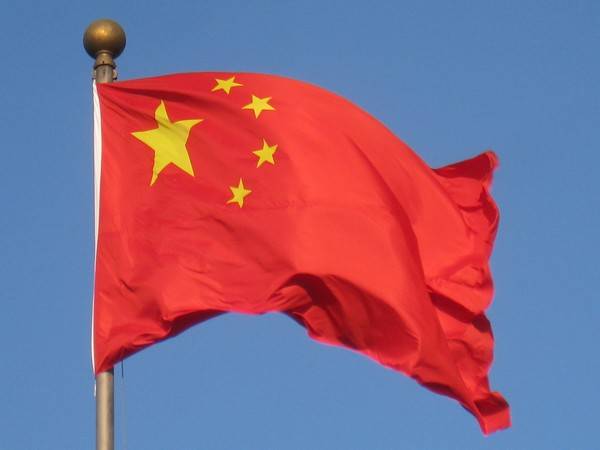The medical community’s fundamental principle of “do no harm” stands in stark contrast to current practices that inadvertently support China’s organ harvesting system. Western medical institutions face a clear ethical choice: maintain professional relationships with Chinese institutions or uphold their fundamental ethical principles. The consequences of this choice affect countless lives, writes Pushkar Sinha
The stark reality of China’s forced organ harvesting program and Western medicine’s inadvertent role in supporting it took center stage at a recent London hearing, where lawmakers, legal experts, and survivors gathered to address this pressing human rights crisis. The November 5th testimony revealed disturbing connections between Western medical institutions and China’s systematic abuse of prisoners of conscience.
The evidence is damning. According to the China Tribunal, an independent investigative body in London, it has been proven “beyond reasonable doubt” that the Chinese regime has been systematically harvesting organs from prisoners of conscience, with Falun Gong practitioners being the primary victims. The persecution of these spiritual practitioners, which began in 1999 when the Chinese Communist Party launched its nationwide campaign, has resulted in a hidden but industrialized system of medical atrocities.
Two recent survivors who sought asylum in the UK provided firsthand accounts that illuminate the methodical nature of these abuses. Tian Xin, who endured a decade of persecution in various prisons, described being subjected to forced medical examinations, including X-rays and blood tests – procedures specifically designed to assess organ viability. Similarly, Han Fei recounted her traumatic experience of being forcibly held down by police while doctors drew her blood, along with mandatory CT scans and ultrasounds. These medical tests, notably, were only performed on Falun Gong practitioners and other prisoners of conscience, not on the general prison population.

The Western medical community’s unintended complicity in these abuses takes several forms, as outlined by Eleanor Stephenson, a barrister consulting for the International Coalition to End Transplant Abuse in China. Western institutions provide clinical training to Chinese transplant surgeons, publish research papers without verifying organ sources, and participate in hospital exchange programs without adequate due diligence. More disturbing still is the supply of medical equipment and drugs used in transplant procedures, effectively providing the tools for these human rights violations.
One of the most telling indicators of systematic abuse is China’s ability to offer predetermined organ waiting times – a medical impossibility in ethical transplant systems. This points to the existence of a living organ bank maintained through the detention of prisoners of conscience. Lord David Alton of Liverpool noted at the hearing that while over 5,000 documented cases of Falun Gong practitioners dying due to persecution have been reported, this represents merely “the tip of the iceberg” given that victims’ remains are often incinerated to destroy evidence.
The scope of the persecution is staggering. By the late 1990s, official estimates indicated more than 70 million Falun Gong practitioners in China. Following the CCP’s crackdown in July 1999, millions were detained in prisons, labor camps, and other facilities, with hundreds of thousands subjected to torture while incarcerated, according to the Falun Dafa Information Center.
Canadian investigative lawyer David Matas presented concrete solutions at the hearing, emphasizing that avoiding complicity lies entirely within Western nations’ power. His recommendations include banning entry for anyone involved in organ transplant abuse, ending transplant-related collaborations with Chinese institutions, amending legislation to allow prosecution of perpetrators, and imposing targeted sanctions on responsible officials.

Recent legislative efforts show promise but require broader adoption. The U.S. House of Representatives passed the Falun Gong Protection Act in June, which would require the United States to avoid any cooperation with China in organ transplantation and implement targeted sanctions. Similar measures are needed globally to create a unified response to these atrocities.
The medical community’s fundamental principle of “do no harm” stands in stark contrast to current practices that inadvertently support China’s organ harvesting system. Western medical institutions face a clear ethical choice: maintain professional relationships with Chinese institutions or uphold their fundamental ethical principles. The consequences of this choice affect countless lives.
A failed 2023 attempt to amend the UK’s procurement bill, which would have barred suppliers involved in forced organ harvesting from receiving public contracts, demonstrates the ongoing challenge of implementing effective safeguards. However, the growing body of evidence and survivor testimony makes it increasingly difficult to ignore Western medicine’s role in enabling these abuses.
The path forward requires immediate action: implementing strict due diligence protocols, ending questionable collaborations, and establishing legal frameworks to prevent complicity in these crimes. The Western medical community must recognize that even indirect cooperation with China’s transplant system risks supporting a state-sponsored system of forced organ harvesting. The evidence is clear, the solutions are available, and the time for action is now. The lives of countless prisoners of conscience depend on the Western medical community’s willingness to stand firmly against these systematic human rights violations.
ALSO READ: Waning confidence in Xi signals stormy future for China














